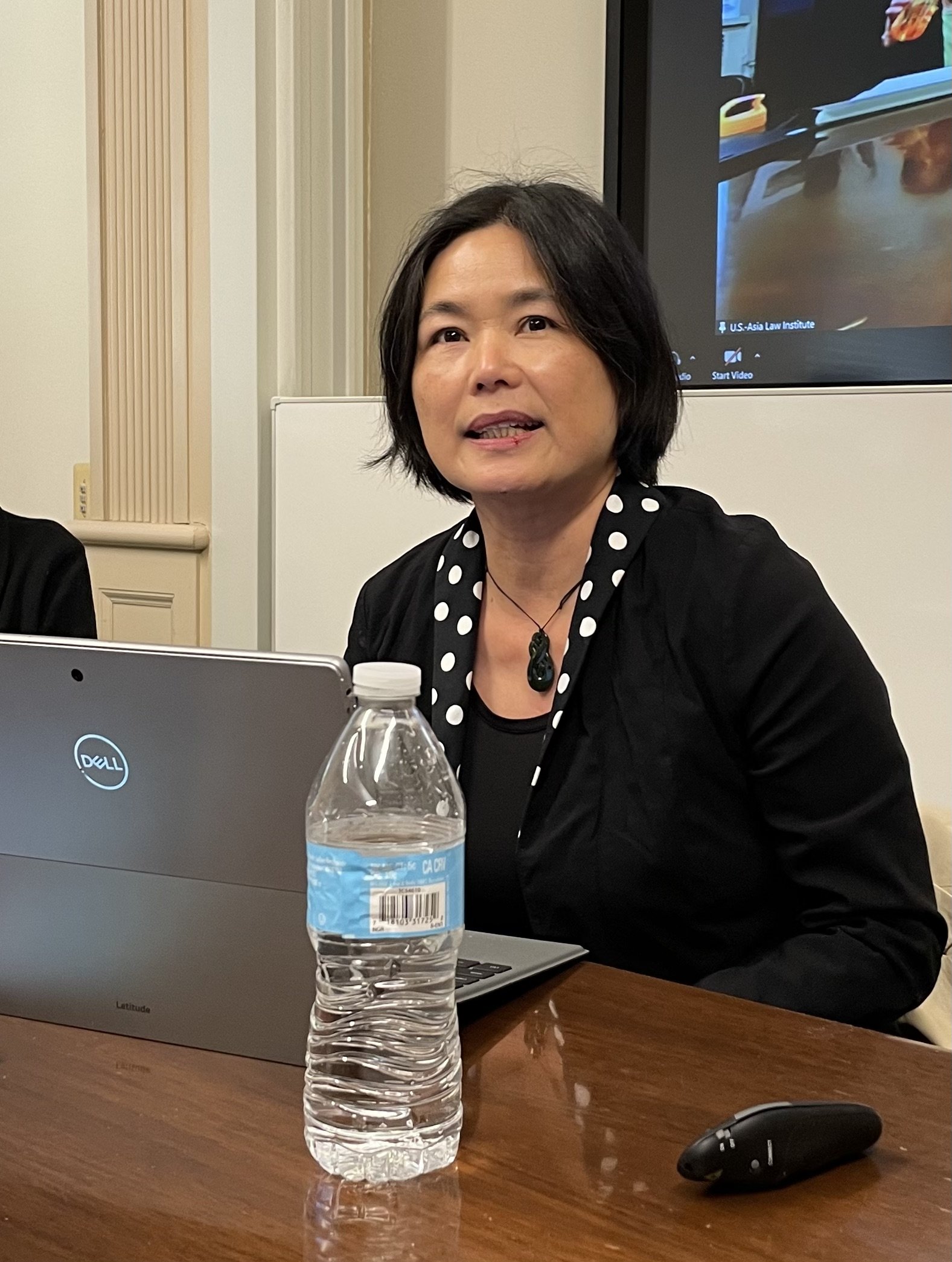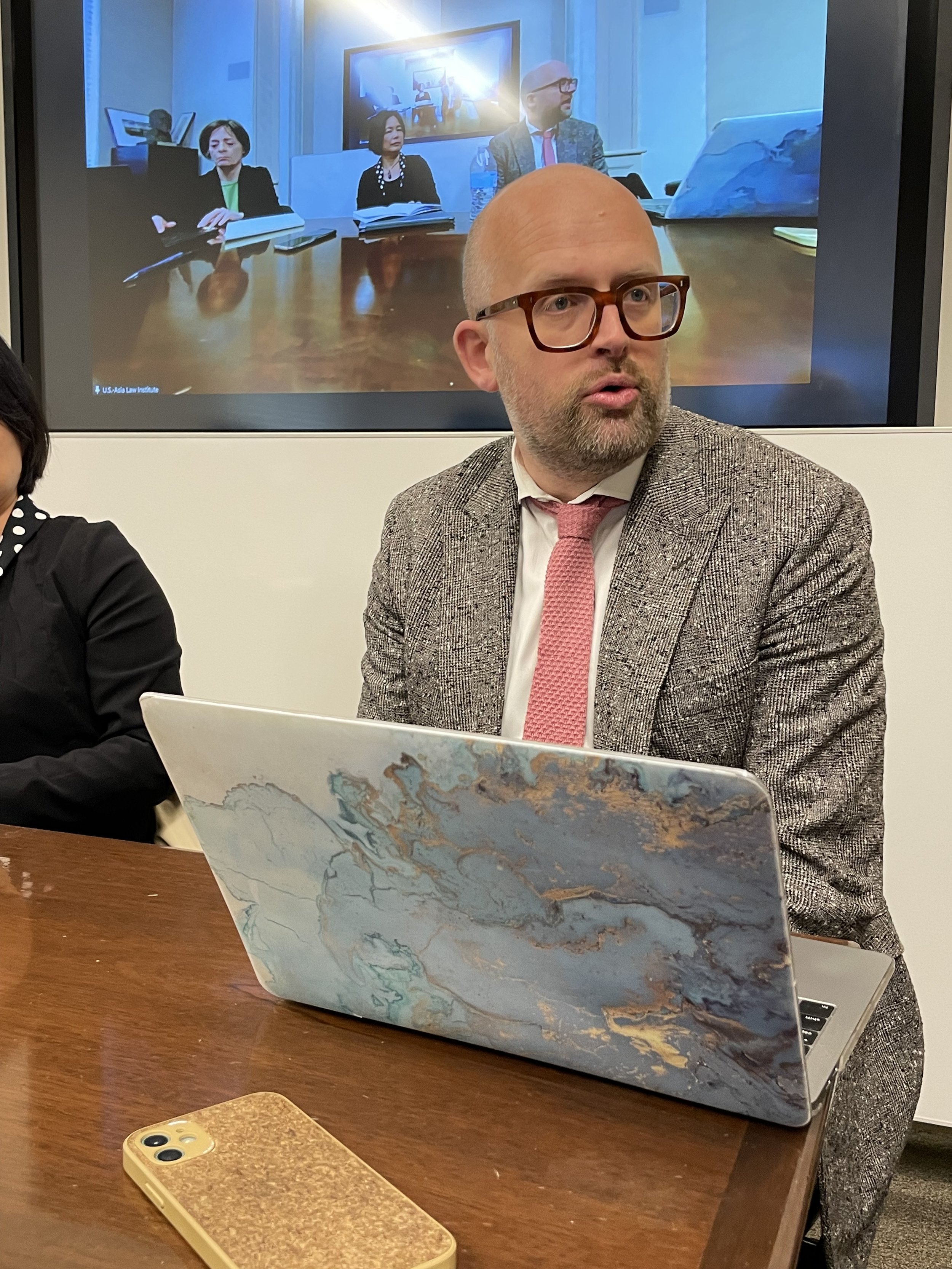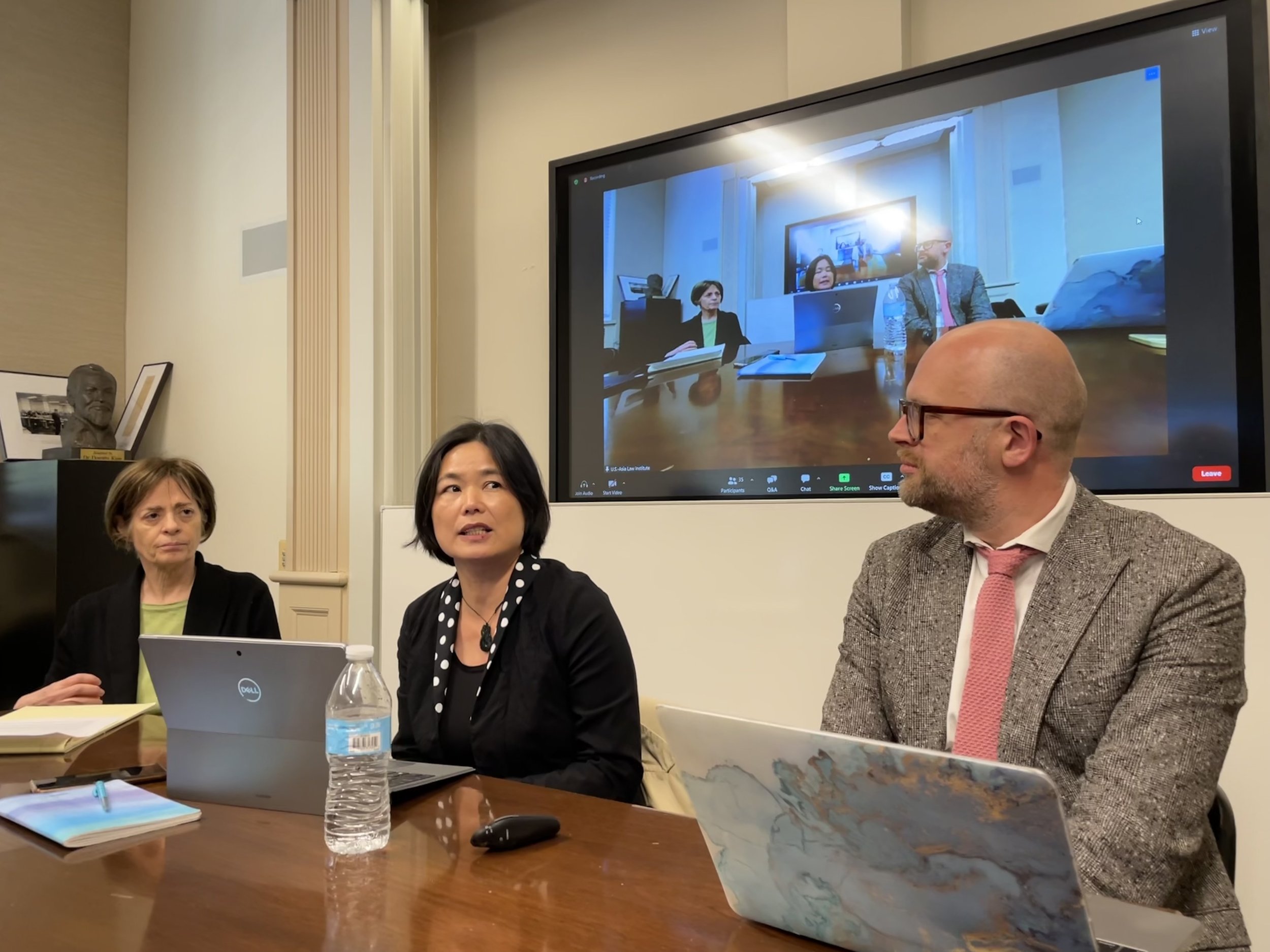China’s Shifting Party-State Boundary
This event was recorded on April 19, 2023
About the event
Earlier this year, China’s Communist Party orchestrated yet another reorganization of party and state organs, resulting in some party and government entities being merged (合并) or joined (合署). The move follows an even more extensive institutional shakeup in 2018. Meanwhile, the party under Xi Jinping’s leadership continues to encroach on government functions in more subtle ways as well. Our speakers, Dr. Ye Ruiping of Victoria University of Wellington and Dr. Ewan Smith of Christ Church, Oxford, have written extensively about party-state relations in China. They will discuss the accelerated pace of party-state integration since 2018 and what “socialist rule of law” means in this context.
About the speakers
Dr. Ruiping Ye
Dr. Ruiping Ye is a senior lecturer in law at Victoria University of Wellington, New Zealand. Dr. Ye’s research interests are comparative law, the Chinese legal tradition and its contemporary legal system and legal culture, as well as land issues in both New Zealand and China. Her research has been published in many national and international academic forums, including the International Journal of Constitutional Law, the Comparative Law Journal of the Pacific, the New Zealand Association for Comparative Law Yearbook, the New Zealand Journal of Public and International Law, and the Max Planck Encyclopaedia of Comparative Constitutional Law. Her book, The Colonisation and Settlement of Taiwan, 1684-1945: Land Tenure, Law and Qing and Japanese Policies (Routledge, 2018), examines the relationship between legal system, colonial policies and aboriginal land tenure changes from a comparative perspective. Dr. Ye earned her PhD and LLM (Distinction) in New Zealand (Wellington) and her LLB from China (Xiamen). She was qualified to practice law in China and is an enrolled barrister and solicitor of the High Court of New Zealand. She serves as the secretary-general of the New Zealand Association for Comparative Law.
Dr. Ewan Smith
Dr. Ewan Smith is a Hauser global fellow at New York University School of Law, affiliated with the U.S.-Asia Law Institute. At NYU, he is working on a monograph about the relationship between written and unwritten constitutions. He is also a fixed term fellow of Christ Church, Oxford, and an early career fellow at Oxford University's Bonavero Institute of Human Rights. Ewan read law at Oxford, the University of Paris, and Harvard Law School. He has previously taught at the University of London and Tsinghua University in China and has been a visiting researcher at Peking University and the National University of Singapore. He is admitted to practice in New York, where he worked for Debevoise and Plimpton LLP. Before returning to Oxford, Ewan spent ten years working as a diplomat for the UK Foreign Office. He advises governments and other organizations. Ewan’s work looks at how rules govern powerful institutions, with a focus on foreign relations law and comparative public law. His recent work on China looks at how the Communist Party conceives familiar ideas like the rule of law and the separation of powers. His recent work on the UK argues that we should enable Parliament, judges, and civil servants to hold our foreign policy to account and suggests how we might do that.





